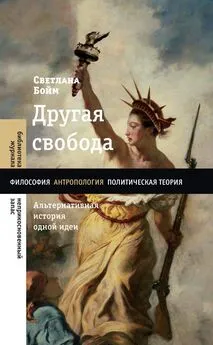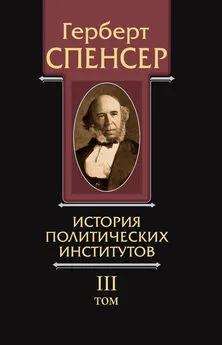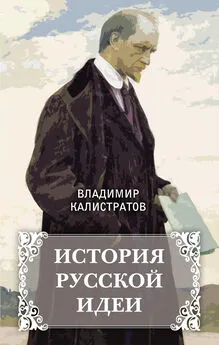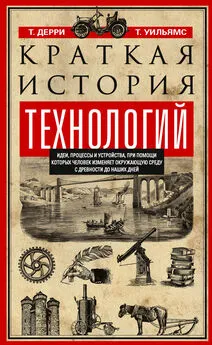Робин Кори - Страх. История политической идеи
- Название:Страх. История политической идеи
- Автор:
- Жанр:
- Издательство:Территория будущего, Прогресс-Традиция
- Год:2007
- Город:Москва
- ISBN:5-91129-047-2
- Рейтинг:
- Избранное:Добавить в избранное
-
Отзывы:
-
Ваша оценка:
Робин Кори - Страх. История политической идеи краткое содержание
Это книга о страхе, в особенности в его отношении к современной политике. Под политическим страхом автор подразумевает переживание людьми возможности определенного ущерба их коллективному благополучию — боязнь терроризма, панику в результате роста преступности, тревогу из-за упадка нравственности — или же запугивание людей властями либо отдельными группами.
http://fb2.traumlibrary.net
Страх. История политической идеи - читать онлайн бесплатно полную версию (весь текст целиком)
Интервал:
Закладка:
(104) Цит. в: Young-Bruehl, p. 356.
(105) Eichmann, pp. 120, 124, 165, 171–73, 279. См. также: Correspondence, p. 485. юб. Eichmann, pp. n-12, 124-25.
(107) Correspondence, p. 417.
(108) Eichmann, p. 125.
(109) Eichmann, pp. 10–11, 39, 117, 131-33, 154, 186–88.
(110) См.: Yehuda Bauer, Rethinking the Holocaust (New Haven: Yale University Press, 2001), pp. 119-66.
(111) An Exchange of Letters Between Gershom Scholem and Hannah Arendt, в изд.: The Jew as Pariah, pp. 250-51.
(112) Franz Kafka, в изд.: Essays in Understanding, p. 78; Correspondence, p. 62.
(113) Between Friends, p. 166; См. также: Correspondence, p. 479; «What Remains? The Lan guage Remains,» в изд.: Essays in Understanding, p. 16.
(114) Daniel Goldhagen, Hitler’s Willing Executioners: Ordinary Germans and the Holocaust (New York: Knopf, 1996), pp. 580-81; Christopher Browning, Ordinary Men: Reserve Police Battalion 10 and the Final Solution in Poland (New York: HarperCollins, 1992, 1998), pp. 159-89. См. также: William Sheridan Allen, The Nazi Seizure of Power: The Experience of a Single German Town 1922–1945 (New York: Franklin Watts, 1954, 1984).
(115) Bauer, p. 105.
(116) Saul Friedlander, Nazi Germany and the Jews, Vol. 1. The Years of Persecution (New York: HarperCollins, 1997), pp. 73-112; Jeffrey Herf, Reactionary Modernism: Technology, Culture and Politics in Weimar and the Third Reich (New York: Cambridge University Press, 1984).
(117) Tzvetan Todorov, Facing the Extreme: Moral Life in the Concentration Camps (New York: Metropolitan Books, 1996).
(118) Getty and Naumov, pp. 6, 14.
(119) Lewis Siegelbaum and Andrei Sokolov, Stalinism as a Way of Life: A Narrative in Documents (New Haven: Yale University Press, 2000), p. 8; Sheila Fitzpatrick, Everyday Stalinism: Ordinary Life in Extraordinary Times: Soviet Russia in the 1930s (New York: Oxford University Press, 1999), pp. 175-78.
(120) Elena Zubkova, Russia After the War: Hopes, Illusions, and Disappointments. 1945–1957 (Armonk: M. E. Sharpe, 1998), pp. 161-63.
(121) Fitzpatrick, p. 208.
(122) Richard Bernstein, The Origins of Totalitarianism: Not History, but Politics, Social Research (Summer 2002), pp. 382, 391; Villa, Politics, Philosophy, Terror, pp. 13–14, 37–38, См. его глубоко содержательные замечания: 52–60; Tsao, pp. 611-12.
(123) См. среди прочего: Robert D. Putnam, Bowling Alone: The Collapse and Revival of American Community (New York: Simon and Schuster, 200); Michael Walzer, On Toleration (New Haven: Yale University Press, 1997), pp. 91, 98-101; Michael Sandel, Democracy’s Discontent: America in Search of a Public Philosophy (Cambridge: Harvard University Press, 1996), pp. 3–4; Amitai Etzioni, The New Golden Rule (New York: Basic Books, 1996), p. 27; Benjamin Barber, Jihad vs. McWorld: How Globalism and Tribalism Are Reshaping the World (New York: Ballantine, 1995, 1996); Benjamin Barber, Strong Democracy: Participatory Politics for a New Age (Berkeley: University of California Press, 1984), pp. 109-14.
(124) Isaac, pp. 60–64; Irving Howe, Totalitarianism Reconsidered: Yesterday’s Theo ries, Today’s Realities, Dissent (Winter 1991), p. 67. Более точные формулировки в кн.: Kateb, p. 54.
(125) Intimacy and Terror: Soviet Diaries of the 1930s / ed. Veronique Garros, Natalia Korenevskaya and Thomas Lahusen (New York: New Press, 1995); Sheila Fitzpatrick, Stalin’s Peasants: Resistance and Survival in the Russian Village After Collectivization (New York: Oxford University Press. 1994): Ian T. Gross. Neighbors: The Destruction of the Jewish Community in Jedwabne, Poland (Princeton: Princeton University Press, 2001); Tina Rosenberg, The Haunted Land: Facing Europe`s Ghosts After Communism (New York: Vintage, 1995); Patricia Politzer, Fear in Chile: Lives Under Pinochet (New York: New Press, 1989, 2001); Lawrence Weschler, A Miracle, a Universe: Settling Accounts with Torturers (Chicago: University of Chicago Press, 1990, 1998); Tina Rosenberg, Children of Cain; Violence and Violent in Latin America (New York; Penguin, 1991), pp. 77-142, 333-87; Mark Danner, The Massacre at El Mozote: A Parable of the Cold War (New York: Vintage, 1993); Daniel Wilkinson, Silence on the Mountain: Stories of Terror, Betrayal and Forgetting in Guatemala (Boston: Houghton Miffl in, 2002).
(126) Kristin Ross, May Day and Its Afterlives (Chicago: University of Chicago Press, 2002), pp. 150-51; Todd Gitlin and Sean Wilentz, To Those Who Supported the Nader Campaign, Dissent (Spring 2001), pp. 903-96.
5. Следы того дня *
(1) Alexis de Tocqueville, «France Before the Consulate», в изд.: Memoirs, Letters, and Remains of Alexis de Tocqueville (Boston: Ticknor and Fields, 1862), pp. 262–263. См. также: Georg Wilhelm Friedrich Hegel, Philosophy of Right, trans. T. M. Knox (New York: Oxford University Press, 1952, 1967), № 324, p. 210; Ралф Уолдо Эмерсон. Героизм. — В изд.: Р. Эмерсон. Эссе. Г. Торо. Уолден, или Жизнь в лесу. — М.: Худож. лит., 1986. С. 213–214. — Перевод В. Бомкина.
(2) Julian Bond, «The Future of the Democratic Party», New York Free Press (31 окт. 1968), переизд. в: The New Left: A Documentary History, ed. Massimo Teodori (Indianapolis: Bobbs-Merrill, 1969), p. 445; текст Рубина цит. в изд.: John Patrick Diggins, The Rise and Fall of the American Left (New York: Norton, 1973, 1992), p. 261.
(3) Paul Berman, A Tale of Two Utopias: The Political Journey of the Generation of 1968 (New York: Norton, 1996), pp. 84–85; Ron Rosenbaum, «Goodbye, All That: How Left Idiocies Drive Me to Flee», New York Observer (14 дек. 2002), p. 1. См. также: Richard Rorty, Achieving Our Country: Leftist Thought in Twentieth-Century America (Cambridge: Harvard University Press, 1998); Michael Kazin, «A Patriotic Left», Dissent (осень 2002): 41–44; Todd Gitlin, «Liberalism’s Patriotic Vision», New York Times (5 сент. 2002), p. A23.
(4) Corey Robin, «The Ex-Cons: Right-Wing Thinkers Go Left!» Lingua Franca (февр. 2001): 32–33.
(5) Фукуяма Фрэнсис. Конец истории и последний человек. М.: ACT; Ерма, 2005. С. 457, 467 (перевод М. Б. Левин).
(6) Michael Walzer, On Toleration (New Haven: Yale University Press, 1997), p. 100; Ami-tai Etzioni, «Old Chestnuts and New Spurs», в изд.: New Communitarian Thinking: Persons, Virtues, Institutions, and Communities, ed. Amitai Etzioni (Charlottesville: University Press of Virginia, 1995), p. 19; Jean Bethke Elshtain, Democracy on Trial (New York: Basic Books, 1995), p. 15); Jennifer Block, «Roe v. Wade, then v. Now», Village Voice (янв. 15–21, 2003), p. 59); Elshtain, «The Communitarian Individual», в изд.: New Communitarian Thinking, p. 106. См. также: William A. Galston, Liberal Purposes: Goods, Virtues, and Diversity in the Liberal State (New York: Cambridge University Press, 1991), pp. 6, 13–15; Charles Taylor, The Ethics of Authenticity (Cambridge: Harvard University Press, 1991), p. 76; Robert D. Putnam, Bowling Alone: The Collapse and Revival of American Community (New York: Simon and Schuster, 2000), pp. 36, 74, 258; Michael J. Sandel, Democracy’s Discontent: America in Search of a Public Philosophy (Cambridge: Harvard University Press, 1996), pp. 47–54, 278–294.
(7) Одним из немногих критиков, кто признал либеральные составляющие либерализма тревоги, была Нэнси Л. Розенблюм. См. ее работу «Pluralism and Self-Defense», в изд.: Liberalism and the Moral Life, ed. Nancy Rosenblum (Cambridge: Harvard University Press, 1989), pp. 207–208, 214–215, 278–294.
(8) Etzioni, «Old Chestnuts and New Spurs», pp. 17–18, 23, 25; Sandel, Democracy’s Discontent, pp. 319–321; Walzer, «The Communitarian Critique of Liberalism», в изд.: New Communitarian Thinking, pp. 52–53; Will Kymlicka, Liberalism, Community, and Culture (Oxford: Clarendon, 1989); Galston, Liberal Purposes.
(9) Наиболее ярко связь между романтической индивидуалистической доминантой 1960-х годов и современным либерализмом тревоги в неизменном интересе и в профессиональной деятельности Чарльза Тейлора, который начинал как «новый левый» романтического склада и в итоге пришел к коммунитаризму См.: Taylor, Hegel (Cambridge: Cambridge University Press, 1975); Taylor, Hegel and Modern Society (Cambridge: Cambridge University Press, 1979); Taylor, «The Politics of Recognition», в изд.: Multiculturalism: Examining the Politics of Recognition, ed. Amy Guttman (Princeton: Princeton University Press, 1994), pp. 25–73; Taylor, The Ethics of Authenticity. Высокопрофессиональное описание романтических индивидуалистических составляющих коммунитаризма см. в работе: Rosenblum, «Pluralism and Self-Defense», pp. 214–215, 218–219.
(10) Etzioni, «Old Chestnuts and New Spurs», p. 22; Kymlicka, Multicultural Citizenship: A Liberal Theory of Minority Rights (Oxford: Clarendon Press, 1995), p. 83; Walzer, «The Communitarian Critique of Liberalism», p. 60.
(11) Yael Tamir, Liberal Nationalism (Princeton: Princeton University Press, 1993), pp. 7–8, 13–34; William M. Sullivan, «Institutions as the Infrastructure of Democracy», в изд.: New Communitarian Thinking, pp. 171–172, 174–175; Taylor, The Ethics of Authenticity, p. 33–39.
(12) Как отмечает Брайан Барри, в этих исследованиях семья зачастую представляется в качестве модели общественной жизни. Brian Barry, Culture and Equality: An Egalitarian Critique of Multiculturalism (Cambridge: Harvard University Press, 2001), pp. 14–15.
(13) Walzer, On Toleration, p. 91; Walzer, «The Communitarian Critique of Liberalism», p. 69; Galston, «Civic Education and the Liberal State», в изд.: Liberalism and the Moral Life, p. 101. См. также: Taylor, The Ethics of Authenticity, pp. 37–41, 57; Richard Rorty, Achieving Our Country, pp. 24–25.
(14) Kymlicka, Liberalism, Community, and Culture, pp. 61–62. См. также: Etzioni, «Old Chestnuts and New Spurs», p. 22; Sandel, Democracy’s Discontent, pp. 308–315, 322–323; Benjamin Barber, Strong Democracy: Participatory Politics for a New Age (Berkeley: University of California Press, 1984), pp. 109–114.
(15) Walzer, «The Communitarian Critique of Liberalism», p. 60; Walzer, On Toleration, p. 104. См. также: Putnam, Bowling Alone, p. 114; Charles Taylor, «Liberal Politics and the Public Sphere», в изд.: New Communitarian Thinking, p. 211; Sandel, Democracy’s Discontent, p. 3; Etzioni, «Old Chestnuts and New Spurs», p. 16; Sullivan, p. 173; Taylor, The Ethics of Authenticity, pp. 9-10, 112–119.
(16) Ср.: Seymour Martin Lipset, Political Man: The Social Bases of Politics (Garden Cuty, N. Y.: Anchor, 1960), p. 24; Richard Hofstadter, The Progressive Historians: Turner, Beard, Parrington (New York: Vintage, 1968), p. 444; John Higham, «The Cult of the ‘American Consensus’: Homogenizing Our History», Commentary 27 (февр. 1959), p. 94; John Higham, Leonard Krieger, Felix Gilbert, History: The Development of Historical Studies in the United States (Englewood Cliffs: Prentice-Hall, 1965), pp. 221–222; Richard Pells, The Liberal Mind in a Conservative Age: American Intellectuals in the 1940s and the 1950s (New York: Harper & Row, 1985), pp. 149, 187, 239; George H. Nash, The Conservative Intellectual Movement in America since 1945 (New York: Basic Books, 1976), pp. 63–64.
Читать дальшеИнтервал:
Закладка:
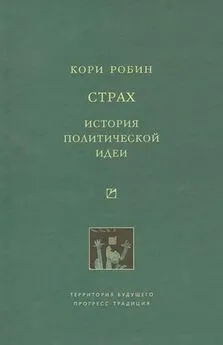



![Эми Ньюмарк - Куриный бульон для души. Мы сильнее наших страхов [101 история о людях, которые рискнули ради мечты] [litres]](/books/1069716/emi-nyumark-kurinyj-bulon-dlya-dushi-my-silnee-na.webp)

